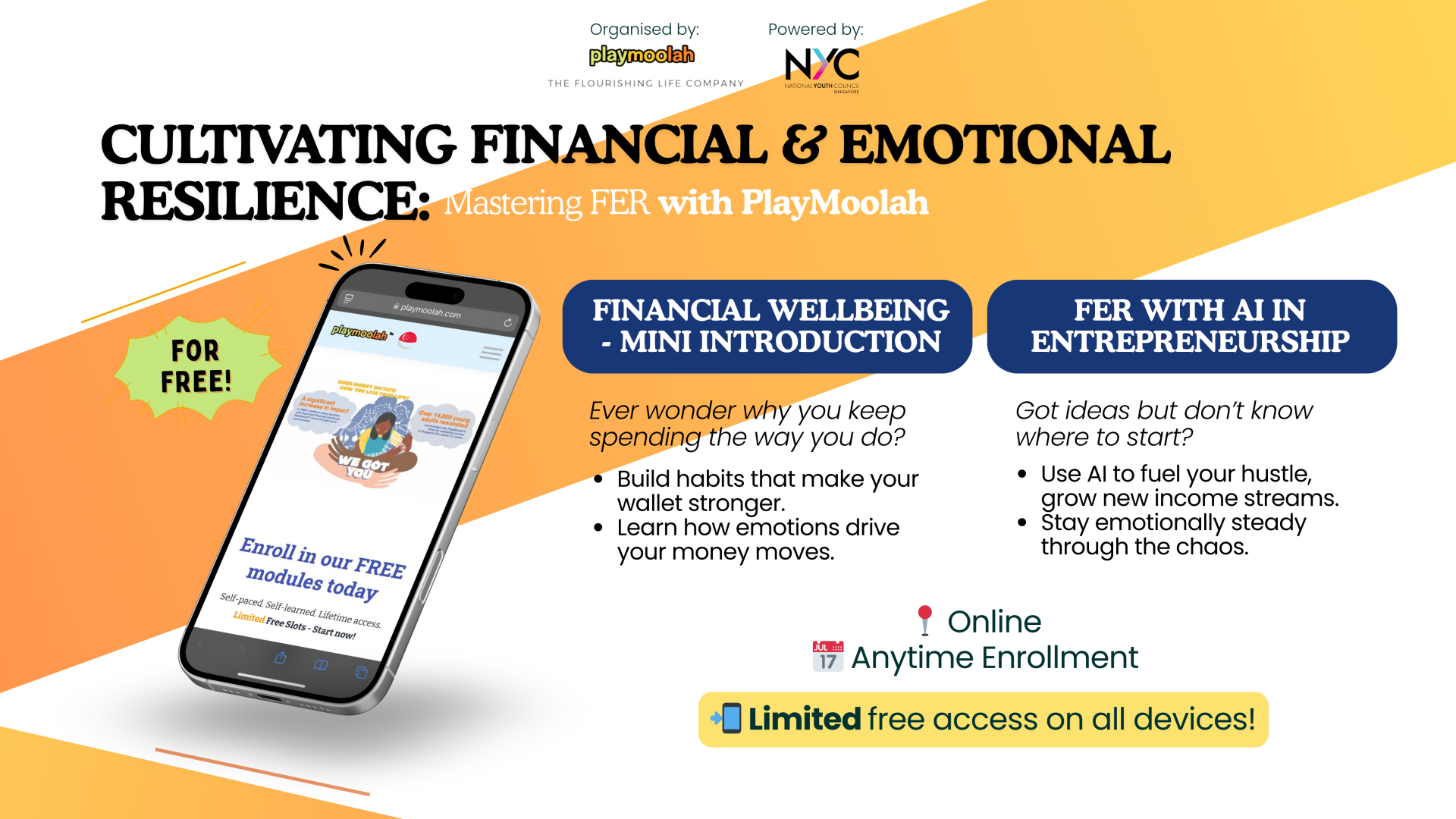I grew up in a relatively well-off family. On the surface, it seemed like we had no money worries, certainly none that were apparent to me as a child. My family liked to keep it that way. Money came to me easily. All I had to do was to ask for it. Sometimes whine, sulk or pout, but money was easy to come by.
My first money lesson in pride came when I was in primary school. My grandma, who brought me up, forbade me from mixing with certain friends because they were "low-class", she said. My family had an image to maintain, I was told. I’ve learnt that what we see is almost always an image, not the reality. It’s a bit like social media — we see only the good things that other people want us to see, and we tend to compare that to our own lives and end up feeling lousy about ourselves. But it’s not really fair to compare another person’s image with our own reality, is it? Can we truly make an accurate comparison at all?
In the late 1990s, my dad’s business went bust during the Asian financial crisis. We had to sell the car, a status symbol. He used to be a proud man when he was his own boss, but in bad times, he had no choice but to humble himself to work for others.
My mother supported us. Back then, she was one of the top 5 most highly paid secretaries in Singapore. Her world came crashing down when her boss of 24 years had a sudden heart attack and died. It was then that she found out the professional image she had so carefully crafted for herself had been built on a false security that died with her boss. With him gone, she had to swallow her pride and beg her boss’ son to keep her job. It didn’t matter. Her boss' son who took over the family business drove the listed company to its grave just a few years later. By the time it was liquidated, her ex-boss’ family was $100 million in debt.
When I met my first publisher, I was enamoured by his apparent wealth. He drove a fancy car and lived in a $1 million condominium. He could go to the gym at 3pm and eat at restaurants every day. When I met him again 10 years later, I had just applied for a BTO 3-room HDB flat. For the non-locals, this is the second cheapest form of housing a Singaporean could normally buy. My publisher chided me for “wasting an opportunity”. He told me I should have gotten the most expensive flat I could afford. “Borrow as much as you can,” he said to me.
In the same meeting, I found out that his lifestyle that I once admired was actually funded by debt, and he was now paying the price for it. Now in his 60s, he was unable to retire because he still had half a million dollars in outstanding loans.
As I reflected on these experiences from my past and present, it became clear to me that the people who lived flashy lifestyles with watches and bags and cars and houses are often heavily in debt, waiting for their next salary to come, and are just one misstep away from financial disaster. I’ve learnt that the biggest problem with a debt-funded lifestyle is that the appearance of being wealthy is built on a false security. It’s built on borrowed money. I am fortunate that in the course of my work, I am privileged to see beyond appearances.
I get to see the true picture of a person’s financial situation, and the worries and concerns that these people have.
